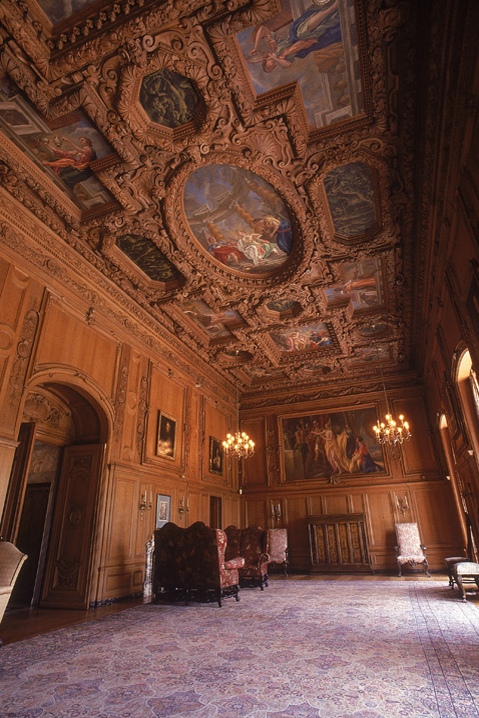The Clark Library hosts its chamber music series, hopes to increase student attendance at concerts

On select Sundays, performances take place in an intimate drawing room in the William Andrews Clark Memorial Library located off campus.
By marjorie yan
Dec. 5, 2011 12:19 a.m.
While UCLA is home to 12 libraries on campus, it is also a proud parent of the William Andrews Clark Memorial Library, located 11 miles east of campus in Los Angeles’ Historic West Adams district.
Also known simply as the Clark Library, the venue is administered by UCLA’s Center for 17th- and 18-Century Studies and houses rare books and manuscripts with a significant focus on English literature and history.
Not only does the library serve as a holding place for collections of books, but it also has a drawing room, where on select Sunday afternoons it hosts its Chamber Music at The Clark concert series.
The series will be going onto its 17th year at The Clark. According to Peter Reill, founder of the series, retired director of The Clark and former UCLA history professor emeritus, the series initially started with three concerts per season and has now expanded to eight.
“When the series first started, we didn’t have a stage and the people in the back couldn’t see very much, but some of our volunteers built us a stage for free. Now we have purchased a stage,” Reill said.
The concerts take place in the 100-seat drawing room of the library, created specifically by William Andrews Clark in 1926 for his own chamber concerts.
According to Bruce Whiteman, who was head librarian from 1996 to 2010 and who still writes program notes for the concerts, he and Reill wanted to have a chamber music series that reflected Clark’s interest in music.
“The drawing room is sometimes called the music room, so it was the obvious place to hold the concerts. It’s acoustically a very nice room,” Whiteman said. “I think when the architect designed the room following Mr. Clark’s wishes, they put a lot of wood in there so it would have a warm acoustic and be ideal for chamber music.”
Reill said that Clark is a pivotal figure in the Los Angeles chamber music scene. Reill also said he wanted to create a program to honor Clark, who is also the founder of the Los Angeles Philharmonic, and that would keep Clark’s legacy alive.
According to both Reill and Barbara Fuchs, the director of the Center for 17th- and 18th-Century Studies at UCLA, the wood-paneled drawing room itself is a crucial component to the series.
“It’s a rectangular model with a lot of wood carving where all the music bounces off of each other,” Reill said.
The rest of the season runs through April 22 and includes performances by musicians such as The Boston Trio, Augustin Hadelich, The Parker Quartet, The Ying Quartet and Sergey Antonov. According to Whiteman, the pieces that are performed at the library’s concerts tend to be music written between 1750 and 1950.
“That range is more 18th and 19th century than 20th. (The pieces) relate to the collections of the library which is focused on 17th to 19th century books so there’s that kind of relationship and explanation for having the series,” Whiteman said.
The Clark Library has enforced a lottery system with deadlines for those interested in attending. People who wish to attend a concert enter the lottery system online and those chosen will get the chance to buy their tickets. This year, the library recently added a UCLA student-only lottery system in which students enter for a chance to purchase tickets separate from the general public.
According to Fuchs, the initiative of having a separate student lottery is to get more students to attend the concerts.
“We’re interested in community outreach. We could charge a lot more for tickets, but that’s not our goal,” Fuchs said. “(Our goal) is to bring as many different people to the audience as possible. We wanted to improve chances for students because we feel they should be (a) part of the UCLA community at these performances.”

